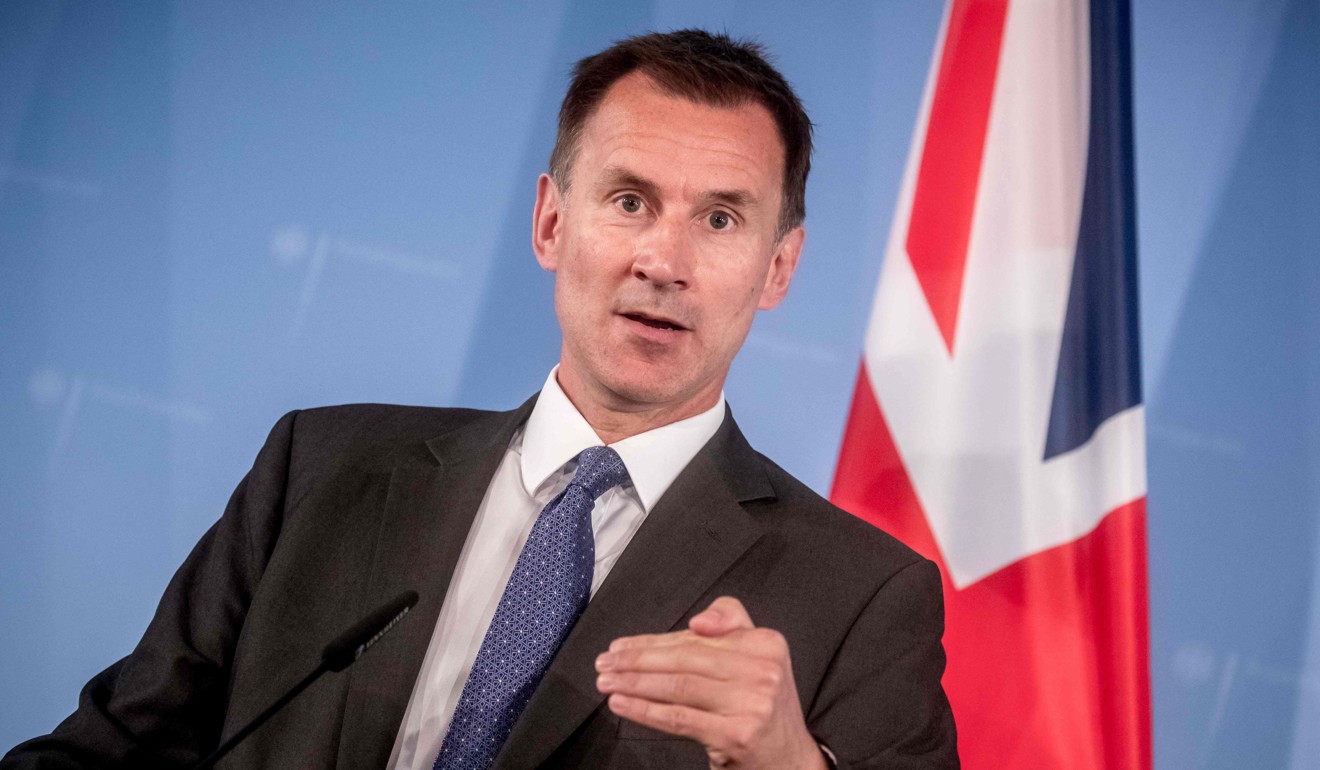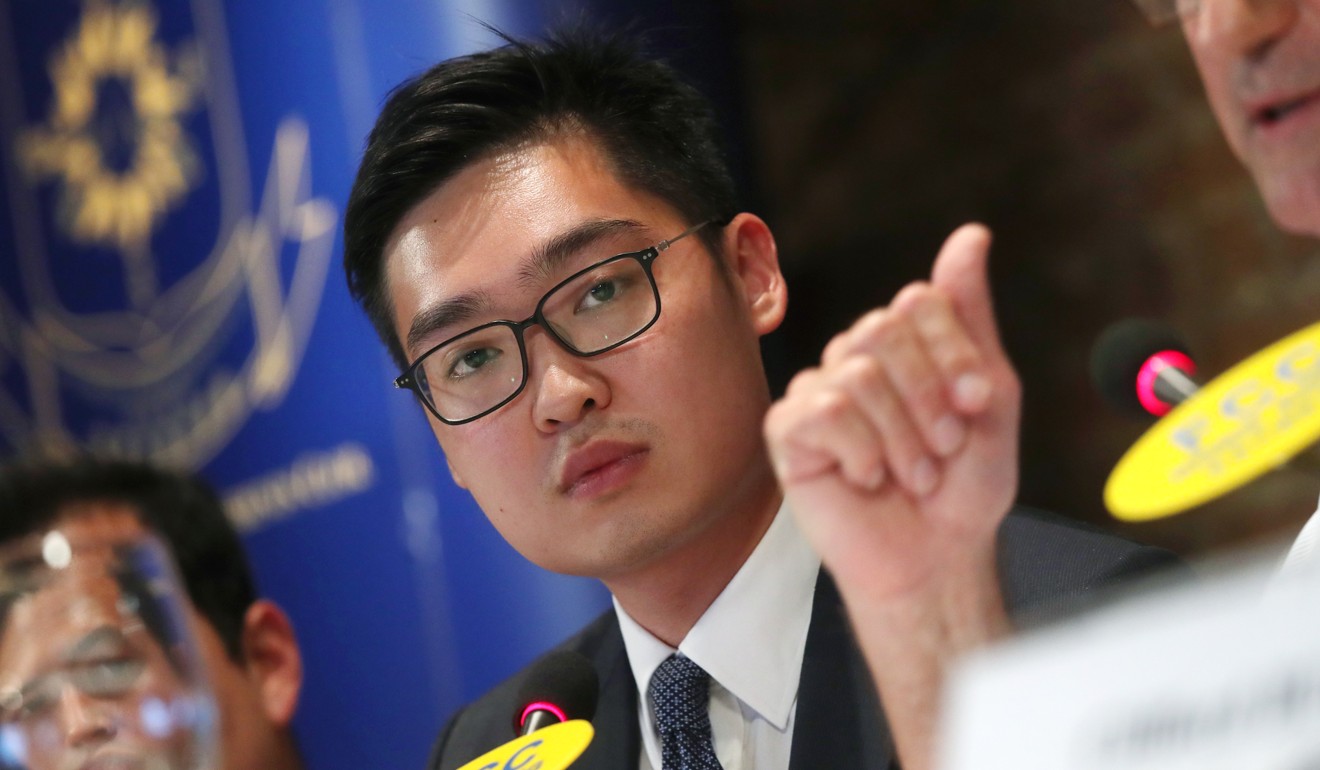
British government sounds warning on freedom of speech in Hong Kong
Report delivered by Foreign Secretary Jeremy Hunt said most provisions of the Sino-British Joint Declaration had been implemented faithfully, but it had ‘concerns’ over pressure on city’s rights and freedoms
The British government has warned of “growing concerns” over the issue of free speech in Hong Kong, particularly in relation to the discussion of the controversial notion of Hong Kong independence.
But its remarks, made in the latest six-monthly report to the British parliament released on Thursday, immediately drew criticism from China’s foreign ministry office in Hong Kong, which said the independence notion was not part of free speech, but a violation of China’s constitution and the city’s mini-constitution, the Basic Law.
In the report, British Foreign Secretary Jeremy Hunt judged that most provisions of the Sino-British Joint Declaration, which guaranteed the “one country, two systems” guiding principle for Hong Kong, had been implemented faithfully, although he was concerned about the continued pressure on the city’s high degree of autonomy, rights and freedoms.

“The UK Government’s view on independence is well known – we believe that it is neither a realistic nor a desirable option for Hong Kong,” Hunt wrote in the report.
“However, the right of freedom of expression, freedom of speech and academic freedom are guaranteed by the Joint Declaration and enshrined in the Basic Law.”
The 20-page report cited the widespread concern about freedom of speech that was sparked by the government’s strong rebuke to the comments made by legal academic Benny Tai Yiu-ting, who co-founded the 2014 pro-democracy Occupy movement, in March.
Beijing’s liaison office in Hong Kong invites teachers to open day event
At a seminar in Taiwan, Tai triggered a political storm by suggesting the city could consider becoming an independent state when China becomes “democratic”.
The Hong Kong government had issued a rare and strongly-worded statement to condemn Tai’s remarks, which was then echoed by the central government.
Watch: Andy Chan talks about his party’s possible ban
The British report quoted media articles in which Tai said he feared for his personal safety as he suspected he was being tailed by officers from “powerful” mainland agencies, as well as the calls from some Beijing’s mouthpieces for Tai to be sacked from the University of Hong Kong.
In July, local authorities had taken a further step to propose an unprecedented ban on the Hong Kong National Party in the name of protecting national security, although the marginalised separatist group had not resorted to any violent acts in achieving its cause.
For the city’s sake, just steer clear of that red line on independence
The latest development – which critics described as a blow to the city’s free speech and freedom of assembly – however did not fall within the period covered by the British report, which only centred on the incidents from January to June.
In remarks made hours after the release of the report, the Office of the Commissioner of the Ministry of Foreign Affairs in Hong Kong said the discussion of the notions of independence was not a matter of freedom of speech – it seriously undermined national sovereignty and territorial integrity. It called on the British government to stop publishing the report and meddling with the city’s affairs.

Meanwhile, Hunt also raised concerns over the local government’s bid to bar three aspirants from running in the Legislative Council by-elections in March on grounds of their political views, alongside the prosecution of two disqualified pro-independence lawmakers, Sixtus Baggio Leung Chung-hang and Yau Wai-ching, for storming a Legco meeting.
“Taken together, I assess that these developments give cause for concern about respect for rights and freedoms, and contribute to a reduction of political plurality in Hong Kong,” the British official wrote.
Hunt called on the Hong Kong government to create an environment that supports open debates and enables people representing the full range of political opinion to play a role in the city’s governance.
A spokesman for the Hong Kong government said on Friday that foreign governments should not interfere with the city’s domestic affairs.
“Since the [1997] handover, the Hong Kong government has been exercising its high level of autonomy strictly in accordance with the Basic Law,” he added.
On the notion of Hong Kong independence, the spokesman said: “The Basic Law clearly states that Hong Kong is an inalienable part of China ... The Hong Kong government treasures freedom of speech, which is protected under the Basic Law.
“But relevant international conventions and court judgments had stated that freedom of speech is not absolute [and without limits].”
On the by-election in March, the spokesman said: “Upholding the Basic Law is a basic legal requirement of a Legco member. It is impossible for a person, who advocates Hong Kong’s independence or democratic self-determination, or the inclusion of independence as an option in a referendum, to uphold the Basic Law and perform the duties of a lawmaker.”

